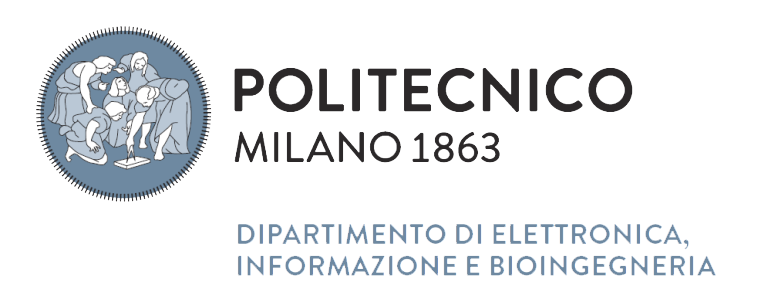Two tutorials are organized on Monday, June 27, 2022 and two will be held on Friday, July 1, 2022.
Monday, June 27, 2022
Tutorial #1 – Availability of Softwarized Networks: from theory to practice
Speakers: Mario Di Mauro (University of Salerno, Italy), Fabio Postiglione (University of Salerno, Italy), Giovanni Galatro (IBM, Italy), Marco Tambasco (Ericsson Telecommunications, Italy)
Abstract
The proposed tutorial intends to offer an ample view about methodologies, theories and tools to deal with the availability concepts applied to the modern softwarized networks. The availability represents one of the most important metrics in network management since it specifies the probability that a network infrastructure is fully operational, and enables network operators to define their Service Level Agreements (SLAs). A classic availability requirement is the so-called “five nines” (or high-availability), meaning that a given network service can tolerate a maximum yearly downtime of 5 minutes and 15 seconds. The tutorial is split into two parts: the first part gently introduces some methods to model the availability of complex systems and presents some techniques useful to compute the (steady-state) availability of softwarized networks, also in line with the ETSI standards dealing with Network Virtualization availability. The second part is aimed at providing some practical examples of availability models for network design, also supported by specific tools to address realistic use cases.
Speakers biography
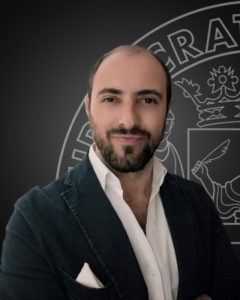 Mario Di Mauro (University of Salerno, Italy) is a Research Fellow and Adjunct Professor of Telecommunications. He received his Laurea degree in Electronic Engineering and his Ph.D. degree in Information Engineering from Univ. of Salerno in 2005 and 2018, respectively. From 2007 to 2012 he was with Research Consortium on Telecommunications (formerly Ericsson Lab Italy) as an industrial researcher. He has been involved in a number of national and European projects mainly focused on next-generation networking systems. He is Senior Member IEEE, IEEE ComSoc Member, IEEE SPS Member, and CNIT (Italian Consortium on Telecommunication) Member. He is Associate Editor for the International Journal of Network Management (John Wiley & Sons), and Guest Editor for the special issue “Statistical Approaches for reliability of Future Communication Systems and Networks” (Electronics, MDPI). His main research interests include 5G network management, network availability and security, data analysis for telco infrastructures, statistical modeling of network traffic, AI/ML for networking.
Mario Di Mauro (University of Salerno, Italy) is a Research Fellow and Adjunct Professor of Telecommunications. He received his Laurea degree in Electronic Engineering and his Ph.D. degree in Information Engineering from Univ. of Salerno in 2005 and 2018, respectively. From 2007 to 2012 he was with Research Consortium on Telecommunications (formerly Ericsson Lab Italy) as an industrial researcher. He has been involved in a number of national and European projects mainly focused on next-generation networking systems. He is Senior Member IEEE, IEEE ComSoc Member, IEEE SPS Member, and CNIT (Italian Consortium on Telecommunication) Member. He is Associate Editor for the International Journal of Network Management (John Wiley & Sons), and Guest Editor for the special issue “Statistical Approaches for reliability of Future Communication Systems and Networks” (Electronics, MDPI). His main research interests include 5G network management, network availability and security, data analysis for telco infrastructures, statistical modeling of network traffic, AI/ML for networking.
 Fabio Postiglione (University of Salerno, Italy) is currently Associate Professor of Applied Statistics. He received his “Laurea” degree (5 years, summa cum laude) in Electronic Engineering and his Ph.D. degree in Information Engineering from University of Salerno in 1999 and 2005, respectively. He is/was involved in several EU-funded FP7/H2020 research projects on degradation analysis, lifetime estimation and diagnosis of fuel cells. He is member of the Italian Statistical Society (SIS), the Italian Consortium on Telecommunication (CNIT), and the LIGO-VIRGO Collaboration (devoted to gravitational waves data analysis). He is Guest Editor for the special issue “Statistical Approaches for Reliability of Future Communication Systems and Networks” (Electronics, MDPI). His main research interests include Bayesian statistics, degradation processes and lifetime estimation, reliability and availability evaluation of complex systems (telecommunication networks, fuel cells). He has authored over 120 papers, mainly published in international journals.
Fabio Postiglione (University of Salerno, Italy) is currently Associate Professor of Applied Statistics. He received his “Laurea” degree (5 years, summa cum laude) in Electronic Engineering and his Ph.D. degree in Information Engineering from University of Salerno in 1999 and 2005, respectively. He is/was involved in several EU-funded FP7/H2020 research projects on degradation analysis, lifetime estimation and diagnosis of fuel cells. He is member of the Italian Statistical Society (SIS), the Italian Consortium on Telecommunication (CNIT), and the LIGO-VIRGO Collaboration (devoted to gravitational waves data analysis). He is Guest Editor for the special issue “Statistical Approaches for Reliability of Future Communication Systems and Networks” (Electronics, MDPI). His main research interests include Bayesian statistics, degradation processes and lifetime estimation, reliability and availability evaluation of complex systems (telecommunication networks, fuel cells). He has authored over 120 papers, mainly published in international journals.
 Giovanni Galatro (IBM, Italy) is a Cloud Engineer at IBM, with a focus on cloud migration and cloud native applications. He received his Master degree in Computer Engineering with honors from University of Salerno in 2018. In 2018 he was a Research contractor at University of Salerno, with focus on availability of virtualized services, next-generation networking systems (5G), machine learning applied to network intrusion detection. Later, he worked as Software Engineer focused on cloud at Contentwise Ltd. and as Cloud support Engineer at Amazon AWS in Dublin (IR). He is AWS Developer associate, OCI solution architect and Red Hat container specialist. His main research interests include 5G network reliability, data analysis and Machine Learning for networking.
Giovanni Galatro (IBM, Italy) is a Cloud Engineer at IBM, with a focus on cloud migration and cloud native applications. He received his Master degree in Computer Engineering with honors from University of Salerno in 2018. In 2018 he was a Research contractor at University of Salerno, with focus on availability of virtualized services, next-generation networking systems (5G), machine learning applied to network intrusion detection. Later, he worked as Software Engineer focused on cloud at Contentwise Ltd. and as Cloud support Engineer at Amazon AWS in Dublin (IR). He is AWS Developer associate, OCI solution architect and Red Hat container specialist. His main research interests include 5G network reliability, data analysis and Machine Learning for networking.
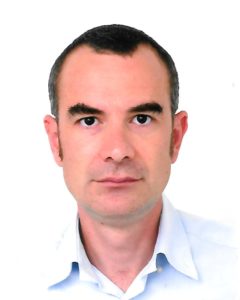 Marco Tambasco (Ericsson Telecommunications, Italy) received his Master’s degree in Electronic Engineering from University of Salerno in 2010, and the PhD degree in Information Engineering in 2021, from the same University. He joined CoRiTeL (Research Consortium on Telecommunications) in 2011 and he is now an industrial researcher for Ericsson Telecommunications where he is mainly involved in design and test of containeirized network applications. His main research interests include networks analysis and design, availability and security of cloud-based telecommunication systems (NFV/SDN), 5G networks tests.
Marco Tambasco (Ericsson Telecommunications, Italy) received his Master’s degree in Electronic Engineering from University of Salerno in 2010, and the PhD degree in Information Engineering in 2021, from the same University. He joined CoRiTeL (Research Consortium on Telecommunications) in 2011 and he is now an industrial researcher for Ericsson Telecommunications where he is mainly involved in design and test of containeirized network applications. His main research interests include networks analysis and design, availability and security of cloud-based telecommunication systems (NFV/SDN), 5G networks tests.
Tutorial #2 – P4PI: P4 on Raspberry PI for Research and Education
Speakers: Noa Zilberman (University of Oxford, UK), Robert Soule (University of Yale, USA, and Barefoot Networks, USA), Fernando Ramos (University of Lisbon, Portugal, and INESC-ID, Portugal), Damu Ding (University of Oxford, UK), Salvatore Signorello (University of Lisbon, Portugal)
Abstract
Over the last decade, open-source research has become one of the most important components in networking evolution. Today, P4 is the leading domain-specific programming language to express how packets are processed in the data plane of programmable network devices. P4PI is an open and low-cost platform designed for the purpose of research and teaching. P4PI aims to allow academic institutes to provide students hands-on experience to build high-speed, hardware-accelerated projects on networking platforms. This tutorial will provide an introduction to prototyping P4 programs on P4PI and a set of hands-on exercises in implementing practical designs.
Speakers biography
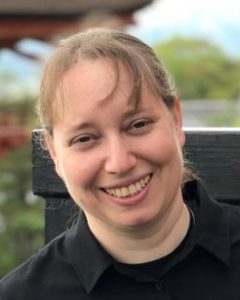 Noa Zilberman is an Associate Professor at the University of Oxford (UK). Prior to joining Oxford, she was a Fellow and an Affiliated Lecturer at the University of Cambridge. Zilberman co-chairs the P4 Education workgroup and is a member of the P4 Technical Steering Team. She was the Chief Architect of NetFPGA SUME and NetFPGA Plus. Before joining Cambridge, she was an Engineering Manager and a Chip Architect at Broadcom. Zilberman holds a PhD Degree in Electrical Engineering from Tel Aviv University.
Noa Zilberman is an Associate Professor at the University of Oxford (UK). Prior to joining Oxford, she was a Fellow and an Affiliated Lecturer at the University of Cambridge. Zilberman co-chairs the P4 Education workgroup and is a member of the P4 Technical Steering Team. She was the Chief Architect of NetFPGA SUME and NetFPGA Plus. Before joining Cambridge, she was an Engineering Manager and a Chip Architect at Broadcom. Zilberman holds a PhD Degree in Electrical Engineering from Tel Aviv University.
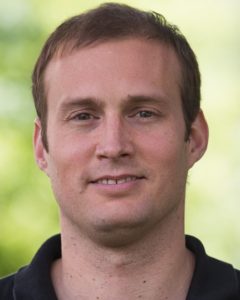 Robert Soulé is an Assistant Professor at Yale University (USA) and a Research Scientist at Barefoot Networks, an Intel Company (USA). Soulé is a member of the P4 Technical Steering Team, and the previous co-chair of the P4 Education workgroup. Prior to joining Yale, he was an Associate Professor at the Università della Svizzera Italiana in Lugano, Switzerland, where he still holds an Adjunct Professor position. He holds a PhD Degree in Computer Science from New York University and did postdoctoral work at Cornell University.
Robert Soulé is an Assistant Professor at Yale University (USA) and a Research Scientist at Barefoot Networks, an Intel Company (USA). Soulé is a member of the P4 Technical Steering Team, and the previous co-chair of the P4 Education workgroup. Prior to joining Yale, he was an Associate Professor at the Università della Svizzera Italiana in Lugano, Switzerland, where he still holds an Adjunct Professor position. He holds a PhD Degree in Computer Science from New York University and did postdoctoral work at Cornell University.
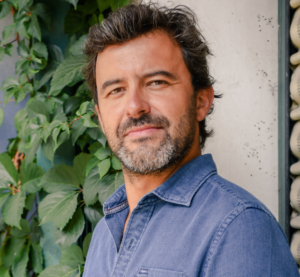 Fernando Ramos is an Associate Professor at the Instituto Superior Técnico, University of Lisbon (Portugal), and a Senior Researcher at INESC-ID (Portugal), where he heads the Distributed, Parallel, and Secure Systems (DPSS) research area. Fernando is currently co-chair of the P4 Education Working Group. Prior to joining IST, he held positions at the Faculty of Sciences, University of Lisbon; University of Cambridge; Telefonica Research; Altice Labs; among others. He holds a PhD degree from the University of Cambridge.
Fernando Ramos is an Associate Professor at the Instituto Superior Técnico, University of Lisbon (Portugal), and a Senior Researcher at INESC-ID (Portugal), where he heads the Distributed, Parallel, and Secure Systems (DPSS) research area. Fernando is currently co-chair of the P4 Education Working Group. Prior to joining IST, he held positions at the Faculty of Sciences, University of Lisbon; University of Cambridge; Telefonica Research; Altice Labs; among others. He holds a PhD degree from the University of Cambridge.
 Damu Ding is a Postdoctoral Researcher at the Department of Engineering Science, University of Oxford (UK). Before joining Oxford, he received his co-tutored PhD Degree from the University of Bologna, Italy, and Fondazione Bruno Kessler Research Center, Italy. Ding has been researching P4-enabled programmable switches for more than 5 years and was the publicity chair of EuroP4 2021.
Damu Ding is a Postdoctoral Researcher at the Department of Engineering Science, University of Oxford (UK). Before joining Oxford, he received his co-tutored PhD Degree from the University of Bologna, Italy, and Fondazione Bruno Kessler Research Center, Italy. Ding has been researching P4-enabled programmable switches for more than 5 years and was the publicity chair of EuroP4 2021.
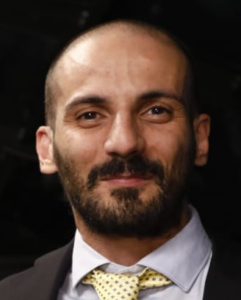 Salvatore Signorello is an Invited Assistant Professor at the Faculty of Sciences of the University of Lisbon (PT) and a research member of the Resilient Distributed and Networked Systems of the LASIGE research centre. He has been using P4 for teaching and research since 2015. He holds a PhD Degree in Computer Science from the University of Lorraine (FR) and the University of Luxembourg (LU).
Salvatore Signorello is an Invited Assistant Professor at the Faculty of Sciences of the University of Lisbon (PT) and a research member of the Resilient Distributed and Networked Systems of the LASIGE research centre. He has been using P4 for teaching and research since 2015. He holds a PhD Degree in Computer Science from the University of Lorraine (FR) and the University of Luxembourg (LU).
Friday, July 1, 2022
Tutorial #3 – Dataplane programming with eBPF: architecture and tools
Speakers: Lorenzo Bracciale (University of Rome Tor Vergata, Italy), Stefano Salsano (University of Rome Tor Vergata, Italy)
Abstract
eBPF is definitely a complex technology. Developing complex systems based on eBPF is challenging due to the intrinsic limitations of the model and the known shortcomings of the tool chain.
The learning curve of this technology is very steep and needs continuous coaching from experts. This tutorial will investigate:
- What is eBPF and why it has gained a prominent position among the solutions to improve the packet processing performance in Linux/x86 nodes. We will shortly present some important use case scenarios for eBPF, like Kubernetes’ Cilium
- The architecture of eBPF and its programming toolchain (e.g. bcc
- What are the frameworks for eBPF programming, such as Polycube and InKeV.
- How to make eBPF programming easier, more flexible and modular with HIKe/eCLAT
- How to implement a custom application logic in eBPF with eCLAT using a python-like script
- How to extend the framework and develop new modules
Speakers biography
 Stefano Salsano is an Associate Professor in the Electronic Engineering Dept. of University of Rome Tor Vergata (Italy). Since July 2018 he is the Coordinator of the Master’s Degree in “ICT and Internet Engineering” and of the Bachelor Degree “Ingegneria di Internet”. He received his Laurea degree in 1994 (Univ. of Rome Tor Vergata) and his PhD in 1998 (Univ. of Rome “La Sapienza”). From 1997 to 2000 he was with CoRiTeL, a research institute on telecommunications, where he has been coordinator of the research activities in the IP related area. In November 2000 he joined the University of Rome Tor Vergata as Assistant Professor. He participated in 16 research projects funded by the EU, being Work Package leader or unit coordinator in 8 of them, technical coordinator in two of them (Simple Mobile Services, SCISSOR) and project coordinator in one (Superfluidity). He has been principal investigator in several research and technology transfer contracts funded by industries. He has led the development of several testbeds and demonstrators in the context of EU projects, most of them released as Open Source software. His current research interests include Network Function Virtualization, Software Defined Networking, Cybersecurity, Mobile and Pervasive Computing. He is co-author of an IETF RFC and of more than 160 papers and book chapters. He has been General Chair of the 14th International Conference on Network and Service Management (CNSM 2018). Since 2017 he is cooperating with Cisco Systems on Segment Routing and he has received two Research Grants from Cisco Systems.
Stefano Salsano is an Associate Professor in the Electronic Engineering Dept. of University of Rome Tor Vergata (Italy). Since July 2018 he is the Coordinator of the Master’s Degree in “ICT and Internet Engineering” and of the Bachelor Degree “Ingegneria di Internet”. He received his Laurea degree in 1994 (Univ. of Rome Tor Vergata) and his PhD in 1998 (Univ. of Rome “La Sapienza”). From 1997 to 2000 he was with CoRiTeL, a research institute on telecommunications, where he has been coordinator of the research activities in the IP related area. In November 2000 he joined the University of Rome Tor Vergata as Assistant Professor. He participated in 16 research projects funded by the EU, being Work Package leader or unit coordinator in 8 of them, technical coordinator in two of them (Simple Mobile Services, SCISSOR) and project coordinator in one (Superfluidity). He has been principal investigator in several research and technology transfer contracts funded by industries. He has led the development of several testbeds and demonstrators in the context of EU projects, most of them released as Open Source software. His current research interests include Network Function Virtualization, Software Defined Networking, Cybersecurity, Mobile and Pervasive Computing. He is co-author of an IETF RFC and of more than 160 papers and book chapters. He has been General Chair of the 14th International Conference on Network and Service Management (CNSM 2018). Since 2017 he is cooperating with Cisco Systems on Segment Routing and he has received two Research Grants from Cisco Systems.
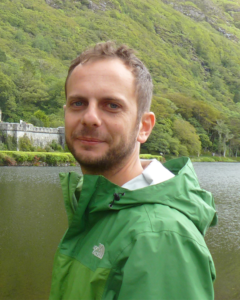 Lorenzo Bracciale earned his Master degree in Telecommunication Engineering (Summa Cum Laude) at the University of Rome Tor Vergata (Italy) in 2006. In 2010 he obtained the Ph.D. degree in Telecommunication and Microelectronics while working on a thesis entitled “Peer Multimedia Communication”. In 2011 started collaborating with the research group “Network Coding and Reliable Communications Group” of the Massachusetts Institute of Technology, MIT on the topic “data dissemination using partial coding”. He has been a research fellow in the Electronic Department of the University of Rome Tor Vergata (“RTD-A”) and then in 2022 an assistant professor (“RTD-B”). He currently teaches Computer Science (>100 students/year). He also collaborates with the University of Sheffield teaching in the course of Big Data Analytics. In 2015 he visited Trinity College Dublin – School of Computer Science & Statistics for a joint project on
Lorenzo Bracciale earned his Master degree in Telecommunication Engineering (Summa Cum Laude) at the University of Rome Tor Vergata (Italy) in 2006. In 2010 he obtained the Ph.D. degree in Telecommunication and Microelectronics while working on a thesis entitled “Peer Multimedia Communication”. In 2011 started collaborating with the research group “Network Coding and Reliable Communications Group” of the Massachusetts Institute of Technology, MIT on the topic “data dissemination using partial coding”. He has been a research fellow in the Electronic Department of the University of Rome Tor Vergata (“RTD-A”) and then in 2022 an assistant professor (“RTD-B”). He currently teaches Computer Science (>100 students/year). He also collaborates with the University of Sheffield teaching in the course of Big Data Analytics. In 2015 he visited Trinity College Dublin – School of Computer Science & Statistics for a joint project on
privacy-preserving recommender systems. In 2016 he joined a research project with Galápagos National Park for the conservation of Pink Iguanas, an endangered endemic species of iguana. He has been the Unit Technical Coordinator of EU H2020 BPR4GDPR project (3 years, 3M€ contribution), coordinating the work on Privacy Enhancing Technologies. He produced more than 41 international publication (H-Index 14), served as reviewer in many international journal (e.g., Transaction on Networking, Transaction on Mobile Computing) and was part of the technical program/organizational committee of many prestigious conferences such as SECON 2021, WCNC 2018 CoNEXT 2015. He gained expertise as a software engineer, founded a startup on smart mobility in 2011 and a digital health startup in 2018, and served as Data Science Advisor for Silicon Valley startups. His current research topics include data privacy, network programmability and machine learning.
Tutorial #4 – Understanding O-RAN: A Tutorial on Architecture, Interfaces, Algorithms, Security, and Research Challenges
Speakers: Michele Polese (Northeastern University, USA), Leonardo Bonati (Northeastern University, USA), Salvatore D’Oro (Northeastern University, USA), Stefano Basagni (Northeastern University, USA), Tommaso Melodia (Northeastern University, USA)
Abstract
The Open Radio Access Network (RAN) paradigm and its embodiment based on the O-RAN Alliance specifications is poised to transform the telecom ecosystem. Created in 2018, the O-RAN Alliance counts already more than 300 members and contributors. It has drafted a complete set of specifications for the O-RAN architecture, interfaces, and platforms, calling for a virtualized and disaggregated RAN whose elements are connected via open interfaces and whose operations are optimized by intelligent controllers. Understanding O-RAN, its architecture, interfaces and tools becomes of paramount importance for researchers and practitioners in the wireless community. With this tutorial we intend to provide a comprehensive introduction to O-RAN, including a clear overview of the potentials of the Open RAN paradigm and of the challenges to its realization. We will also present the tools to be used for experimental research in the O-RAN domain. The tutorial is organized to provide a deep dive on the O- RAN specications, describing its architecture, design principles, and the O-RAN interfaces. We will then describe how the O-RAN RAN Intelligent Controllers (RICs) can be used to effectively control and manage 3GPP-defined RANs. Based on this, we will discuss innovations and challenges that relate to O-RAN networks, including the Artificial Intelligence (AI) and Machine Learning (ML) workflows enabled by the architecture and interfaces along with and security and standardization issues. Finally, we will present and demo OpenRAN Gym, an open toolbox for experimental research on Open RAN, along with recent research results, concluding with an outline of directions for future O-RAN development.
Speakers biography
 Michele Polese is a Principal Research Scientist at Northeastern University, Boston, since March 2020. He received his Ph.D. at the University of Padova in 2020. His research interests are in the analysis and development of future generations of cellular networks, spectrum sharing and passive/active user coexistence, Open RAN, and the performance evaluation of end-to-end, complex networks. He has contributed to O-RAN technical specifications and submitted responses to multiple FCC and NTIA notice of inquiry and requests for comments. He collaborates with several academic and industrial research partners, and was awarded with several best paper awards. He is serving as TPC co-chair for WNS3 2021-2022, as an Associate Technical Editor for the IEEE Communications Magazine, and has organized the Open 5G Forum in Fall 2021.
Michele Polese is a Principal Research Scientist at Northeastern University, Boston, since March 2020. He received his Ph.D. at the University of Padova in 2020. His research interests are in the analysis and development of future generations of cellular networks, spectrum sharing and passive/active user coexistence, Open RAN, and the performance evaluation of end-to-end, complex networks. He has contributed to O-RAN technical specifications and submitted responses to multiple FCC and NTIA notice of inquiry and requests for comments. He collaborates with several academic and industrial research partners, and was awarded with several best paper awards. He is serving as TPC co-chair for WNS3 2021-2022, as an Associate Technical Editor for the IEEE Communications Magazine, and has organized the Open 5G Forum in Fall 2021.
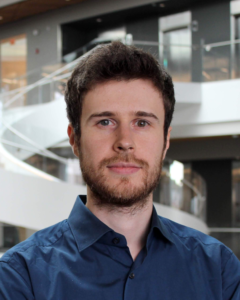 Leonardo Bonati received his B.S. in Information Engineering and his M.S. in Telecommunication Engineering from University of Padova, Italy in 2014 and 2016, respectively. He is currently pursuing a Ph.D. degree in Computer Engineering at Northeastern University, MA, USA. His research interests focus on 5G and beyond cellular networks, network slicing, and software-defined networking for wireless networks.
Leonardo Bonati received his B.S. in Information Engineering and his M.S. in Telecommunication Engineering from University of Padova, Italy in 2014 and 2016, respectively. He is currently pursuing a Ph.D. degree in Computer Engineering at Northeastern University, MA, USA. His research interests focus on 5G and beyond cellular networks, network slicing, and software-defined networking for wireless networks.
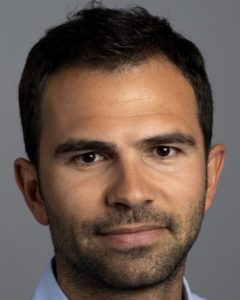 Salvatore D’Oro received his Ph.D. degree from the University of Catania in 2015. He is currently a Research Assistant Professor at Northeastern University. He serves on the Technical Program Committee (TPC) of Elsevier Computer Communications journal and of multiple IEEE conferences and workshops. In 2015, 2016 and 2017 he organized the 1st, 2nd and 3rd Workshops on COmpetitive and COoperative Approaches for 5G networks (COCOA). Dr. D’Oro is also a reviewer for major IEEE and ACM journals and conferences. Dr. D’Oro’s research interests include game-theory, optimization, learning and their applications to 5G networks.
Salvatore D’Oro received his Ph.D. degree from the University of Catania in 2015. He is currently a Research Assistant Professor at Northeastern University. He serves on the Technical Program Committee (TPC) of Elsevier Computer Communications journal and of multiple IEEE conferences and workshops. In 2015, 2016 and 2017 he organized the 1st, 2nd and 3rd Workshops on COmpetitive and COoperative Approaches for 5G networks (COCOA). Dr. D’Oro is also a reviewer for major IEEE and ACM journals and conferences. Dr. D’Oro’s research interests include game-theory, optimization, learning and their applications to 5G networks.
 Stefano Basagni is a professor at the ECE Department at Northeastern University, in Boston, MA. He holds a Ph.D. in electrical engineering from the University of Texas at Dallas (2001) and a Ph.D. in computer science from the University of Milano, Italy (1998). Dr. Basagni’s current interests concern research and implementation aspects of mobile networks and wireless communications systems, wireless sensor networking for IoT (underwater, aerial and terrestrial), and definition and performance evaluation of network protocols. Dr. Basagni has published over ten dozen of highly cited, refereed technical papers and book chapters. Dr. Basagni served as a guest editor of multiple international ACM/IEEE, Wiley and Elsevier journals. He has been the TPC co-chair of international conferences.
Stefano Basagni is a professor at the ECE Department at Northeastern University, in Boston, MA. He holds a Ph.D. in electrical engineering from the University of Texas at Dallas (2001) and a Ph.D. in computer science from the University of Milano, Italy (1998). Dr. Basagni’s current interests concern research and implementation aspects of mobile networks and wireless communications systems, wireless sensor networking for IoT (underwater, aerial and terrestrial), and definition and performance evaluation of network protocols. Dr. Basagni has published over ten dozen of highly cited, refereed technical papers and book chapters. Dr. Basagni served as a guest editor of multiple international ACM/IEEE, Wiley and Elsevier journals. He has been the TPC co-chair of international conferences.
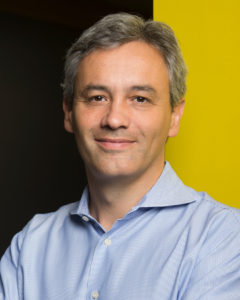 Tommaso Melodia is the William Lincoln Smith Chair Professor with the Department of Electrical and Computer Engineering at Northeastern University in Boston. He is also the Founding Director of the Institute for the Wireless Internet of Things and the Director of Research for the PAWR Project Office. He received his Ph.D. in Electrical and Computer Engineering from the Georgia Institute of Technology in 2007. Prof. Melodia has served as Associate Editor of IEEE Transactions on Wireless Communications, IEEE Transactions on Mobile Computing, Elsevier Computer Networks, among others. He has served as Technical Program Committee Chair for IEEE Infocom 2018, General Chair for IEEE SECON 2019, ACM Nanocom 2019, and ACM WUWnet 2014. Prof. Melodia is the Director of Research for the Platforms for Advanced Wireless Research (PAWR) Project Office. Prof. Melodia’s research on modeling, optimization, and experimental evaluation of Internet of Things and wireless networked systems has been funded by the U.S. NSF, AFRL, ONR, DARPA, and ARL.
Tommaso Melodia is the William Lincoln Smith Chair Professor with the Department of Electrical and Computer Engineering at Northeastern University in Boston. He is also the Founding Director of the Institute for the Wireless Internet of Things and the Director of Research for the PAWR Project Office. He received his Ph.D. in Electrical and Computer Engineering from the Georgia Institute of Technology in 2007. Prof. Melodia has served as Associate Editor of IEEE Transactions on Wireless Communications, IEEE Transactions on Mobile Computing, Elsevier Computer Networks, among others. He has served as Technical Program Committee Chair for IEEE Infocom 2018, General Chair for IEEE SECON 2019, ACM Nanocom 2019, and ACM WUWnet 2014. Prof. Melodia is the Director of Research for the Platforms for Advanced Wireless Research (PAWR) Project Office. Prof. Melodia’s research on modeling, optimization, and experimental evaluation of Internet of Things and wireless networked systems has been funded by the U.S. NSF, AFRL, ONR, DARPA, and ARL.








